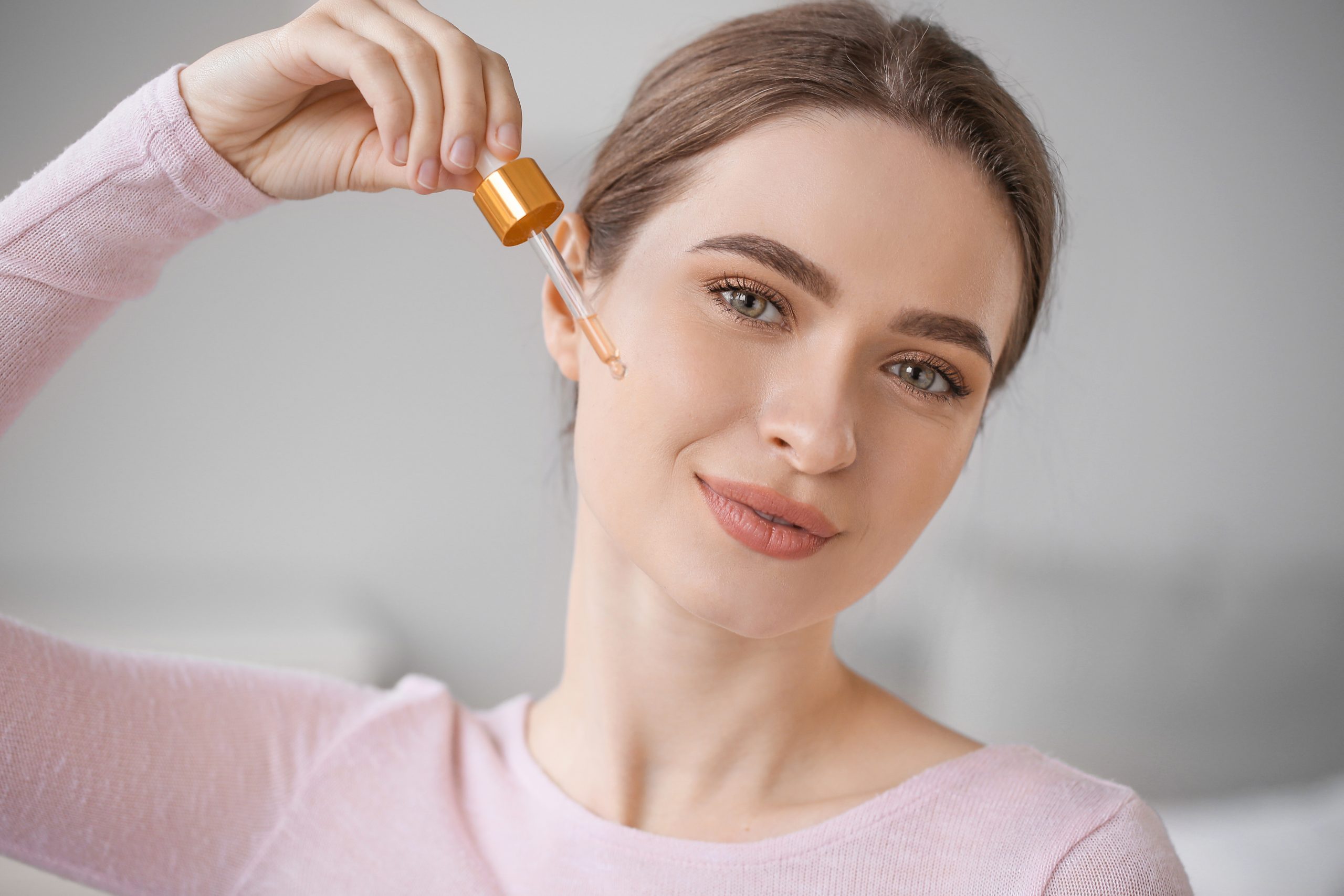
In the realm of natural remedies, olive oil stands as a testament to the healing power of nature. Revered for its myriad health benefits, this golden elixir has been a staple in Mediterranean diets and skincare rituals for centuries. But beyond its culinary allure and cosmetic applications, can olive oil be the balm for the persistent itch and discomfort of eczema? As more individuals seek holistic approaches to skin health, the spotlight on olive oil’s potential intensifies. This article delves into the heart of this ancient remedy, exploring the intricacies of olive oil as a potential salve for eczema-afflicted skin.
Understanding Eczema and Its Triggers
Eczema, often referred to as atopic dermatitis, is more than just an occasional itch or red patch on the skin. It’s a chronic, relapsing condition characterized by inflamed, itchy, and often cracked skin. The distressing flare-ups can be triggered by a myriad of factors, from environmental allergens to stress and even certain foods.
Understanding the Triggers
At the core of eczema lies an overactive immune response. When the skin’s barrier is compromised, it becomes more susceptible to irritants and allergens. Common triggers include:
- Environmental Factors: Pollen, dust mites, and pet dander can exacerbate eczema symptoms.
- Irritants: Harsh soaps, detergents, and certain fabrics can irritate sensitive skin.
- Stress: Emotional stress doesn’t directly cause eczema but can lead to flare-ups.
- Dietary Choices: Some individuals find that certain foods, like dairy or nuts, can trigger their eczema.
The Role of Skin’s Barrier
The skin acts as a protective shield, guarding the body against external aggressors. However, in individuals with eczema, this barrier is often weakened, allowing moisture to escape and irritants to penetrate more easily. This compromised barrier is a significant factor in eczema’s development and persistence.
Why Moisturization Matters
For those with eczema, maintaining skin hydration is paramount. Dry skin can intensify itching, leading to a vicious cycle of scratching and further skin damage. This is where the emollient properties of substances like olive oil come into play, offering both hydration and a protective layer to the skin.
In the quest to alleviate the discomfort of eczema, understanding its underlying mechanisms is the first step. With this knowledge, one can better navigate the myriad of treatment options available, including natural remedies like olive oil.
Why Consider Olive Oil for Eczema?
Olive oil, particularly the extra virgin variety, has long been celebrated for its nutritional and medicinal virtues. But what makes it a potential ally for eczema sufferers? Let’s unravel the components and characteristics of olive oil that could make it a boon for inflamed and irritated skin.
Rich in Antioxidants
Olive oil is packed with powerful antioxidants like vitamin E and polyphenols. These compounds combat oxidative stress, which can exacerbate skin inflammation and damage. By neutralizing free radicals, olive oil helps protect the skin and promote healing.
Natural Emollient
The fatty acid composition of olive oil, especially oleic acid, gives it its moisturizing properties. As an emollient, it fills the gaps in the skin’s barrier, preventing moisture loss and keeping the skin soft and supple. This hydration can be particularly beneficial for the dry patches often associated with eczema.
Anti-inflammatory Effects
Olive oil contains compounds like oleocanthal, which has been shown to have anti-inflammatory properties similar to ibuprofen. This can help reduce the redness and swelling characteristic of eczema flare-ups.
Enhancing Skin Barrier Function
By providing a protective layer on the skin’s surface, olive oil can help reinforce the skin’s natural barrier, preventing allergens and irritants from penetrating and triggering eczema symptoms.
Ozonated Olive Oil: A Special Mention
Ozonated olive oil is a unique variant where ozone is infused into the oil. This process enhances its antimicrobial and healing properties, making it particularly potent against skin conditions like eczema.
While olive oil offers a plethora of skin benefits, it’s essential to remember that individual responses can vary. What works wonders for one person might not be as effective for another. However, given its natural composition and historical use in skincare, olive oil remains a promising option for those seeking holistic approaches to manage their eczema.
Different Ways to Use Olive Oil for Eczema Relief
Harnessing the benefits of olive oil for eczema relief goes beyond just applying it directly to the skin. There are various methods and combinations that can enhance its efficacy. Here’s a comprehensive guide on how to make the most of this natural remedy:
1. Direct Topical Application
For immediate relief from dryness and itching:
- Warm a small amount of olive oil between your palms.
- Gently massage onto the affected areas.
- Allow it to absorb naturally. For enhanced hydration, leave it on overnight.
2. Olive Oil Bath Soak
For full-body relief and relaxation:
- Fill your bathtub with lukewarm water.
- Add 2-3 tablespoons of extra virgin olive oil.
- Soak for 15-20 minutes, allowing the oil to permeate and soothe the skin.
3. Olive Oil and Aloe Vera Blend
Aloe vera’s cooling properties combined with olive oil can offer enhanced soothing:
- Mix equal parts of olive oil and aloe vera gel.
- Apply the blend to irritated areas for a cooling and moisturizing effect.
4. Olive Oil Exfoliation
To remove dead skin cells and promote skin regeneration:
- Combine olive oil with a gentle natural exfoliant like oatmeal.
- Gently scrub the mixture on eczema patches to exfoliate without causing irritation.
5. Dietary Inclusion
Boosting skin health from within:
- Incorporate olive oil into your daily diet, either as a salad dressing or in cooking.
- The anti-inflammatory properties can benefit not just the skin but overall health.
6. Choosing the Right Product
Not all olive oils are created equal:
- Opt for cold-pressed extra virgin olive oil for maximum benefits.
- Ensure the product is free from additives or fragrances that might irritate sensitive skin.
Precautions to Consider
While olive oil is generally safe for most people, always conduct a patch test before extensive use. If any adverse reactions occur, discontinue use and consult a dermatologist.
By integrating olive oil into your eczema care routine in these varied ways, you can tap into its full potential, offering your skin the nourishment and relief it craves.
Ozonated Olive Oil: A Potent Variant
Ozonated olive oil is olive oil that has been infused with ozone. This process enhances the oil’s healing properties, making it even more effective against skin conditions like eczema.
Consuming Olive Oil for Skin Health
Including olive oil in your diet can also benefit your skin from the inside out. Its anti-inflammatory properties can potentially reduce eczema flare-ups.
Addressing Common Concerns: Olive Oil and Eczema Myths Debunked
In the age of information, myths and misconceptions can spread as rapidly as genuine knowledge. When it comes to olive oil’s role in eczema care, several notions need clarification. Let’s address some of the common concerns and misconceptions surrounding this natural remedy.
1. “Olive oil can cure eczema.”
While olive oil can provide relief from symptoms and improve skin health, it’s not a cure for eczema. Eczema is a chronic condition, and its management requires a holistic approach, including understanding triggers and maintaining a consistent skincare routine.
2. “All types of olive oil are the same.”
The quality and processing method of olive oil can significantly impact its benefits. Extra virgin olive oil, cold-pressed and unrefined, retains the maximum nutrients and is the best choice for skincare.
3. “Olive oil can make eczema worse.”
While rare, some individuals might be sensitive to olive oil. It’s always recommended to conduct a patch test before extensive use. If irritation occurs, it’s essential to stop usage and consult a dermatologist.
4. “Olive oil is too greasy for eczema-prone skin.”
While olive oil is indeed an oil, its composition closely resembles the natural oils of our skin. When applied in moderation, it gets absorbed without leaving a greasy residue, providing deep hydration.
5. “Consuming olive oil has no impact on skin health.”
Diet plays a crucial role in skin health. The anti-inflammatory properties of olive oil can benefit the skin from the inside out, potentially reducing eczema flare-ups.
6. “Ozonated olive oil is just a marketing gimmick.”
Ozonated olive oil undergoes a process where it’s infused with ozone, enhancing its antimicrobial properties. This variant can be particularly effective against skin conditions, but it’s essential to choose a reputable brand.
In the journey of eczema management, it’s crucial to differentiate between myths and facts. By staying informed and making choices based on evidence and personal experience, one can navigate the path to healthier skin with confidence.
Precautions and Best Practices: Making Olive Oil Work for Your Eczema
While olive oil offers a plethora of benefits for eczema-prone skin, it’s essential to approach its use with care and knowledge. Here are some precautions and best practices to ensure you reap the maximum benefits without any adverse effects:
1. Conduct a Patch Test
Before incorporating olive oil extensively into your skincare routine, apply a small amount to a discreet area of your skin. Monitor for any signs of irritation or allergic reactions for 24 hours. If any adverse reactions occur, it might be best to reconsider its use.
2. Quality Over Quantity
Always opt for high-quality, cold-pressed extra virgin olive oil. This type retains the most nutrients and is free from additives that might irritate sensitive skin.
3. Moderation is Key
While olive oil is beneficial, using excessive amounts can leave the skin feeling greasy. A few drops are often enough to moisturize and soothe the skin effectively.
4. Be Wary of Combining Treatments
If you’re using medicated creams or ointments for your eczema, consult with a dermatologist before adding olive oil to the mix. Some ingredients might not interact well, reducing the effectiveness of your treatment.
5. Store Properly
Olive oil can degrade when exposed to light and heat. Always store your olive oil in a cool, dark place, preferably in a dark glass bottle, to preserve its quality.
6. Dietary Considerations
While topical application offers numerous benefits, incorporating olive oil into your diet can also promote skin health from within. However, ensure you’re consuming it in moderation as part of a balanced diet.
7. Stay Updated
Research on natural remedies like olive oil is ongoing. Stay updated with the latest findings to make informed decisions about your skincare.
Olive oil, with its rich history and proven benefits, can be a valuable addition to an eczema care routine. However, as with any remedy, it’s essential to approach its use with knowledge and caution. By following these precautions and best practices, you can harness the power of olive oil for healthier, more resilient skin.
Frequently Asked Questions about Olive Oil and Eczema
1. How does olive oil benefit eczema-prone skin?
Olive oil is rich in antioxidants, vitamins, and essential fatty acids, which can help moisturize the skin, reduce inflammation, and strengthen the skin’s natural barrier. Its emollient properties can provide relief from dryness and itching commonly associated with eczema.
2. Can I use any type of olive oil for my eczema?
While olive oil, in general, offers skin benefits, it’s recommended to opt for cold-pressed extra virgin olive oil. This type retains the maximum nutrients and is free from additives that might irritate sensitive skin.
3. How often should I apply olive oil to my eczema patches?
For best results, you can apply olive oil to affected areas once or twice daily, especially after bathing when the skin is still slightly damp. However, always monitor your skin’s response and adjust the frequency accordingly.
4. Are there any side effects of using olive oil on eczema-prone skin?
While olive oil is generally safe for most people, some individuals might experience sensitivity or allergic reactions. It’s crucial to conduct a patch test before extensive use and consult a dermatologist if any adverse reactions occur.
5. Can I combine olive oil with other natural remedies for eczema?
Yes, olive oil can be combined with other natural ingredients like aloe vera or oatmeal to enhance its soothing effects. However, always ensure that you’re not allergic to any of the combined ingredients.
6. Is consuming olive oil beneficial for eczema?
Incorporating olive oil into your diet can promote skin health from within, thanks to its anti-inflammatory properties. However, it’s essential to consume it as part of a balanced diet and in moderation.
7. What’s the difference between regular olive oil and ozonated olive oil for skin conditions?
Ozonated olive oil undergoes a process where it’s infused with ozone, enhancing its antimicrobial properties. This variant can be particularly effective against skin conditions, but it’s essential to choose a reputable brand.
8. Can olive oil replace my medicated eczema creams?
While olive oil can provide relief from eczema symptoms, it’s not a replacement for prescribed medications. Always consult with a dermatologist before making any changes to your skincare regimen.
Conclusion: Olive Oil and Eczema: A Natural Partnership for Skin Health
In the vast landscape of skincare, olive oil emerges as a beacon of hope for many battling the persistent challenges of eczema. Its rich composition, laden with antioxidants, vitamins, and essential fatty acids, positions it as a potent ally in the quest for skin relief and rejuvenation.
The journey through the annals of olive oil’s benefits, from its deep moisturizing properties to its ability to fortify the skin’s barrier, paints a promising picture. Coupled with real-life testimonials, the case for olive oil in eczema care becomes even more compelling.
However, as with all natural remedies, it’s essential to tread with caution and knowledge. Individual skin responses can vary, and what works wonders for one might not resonate with another. It’s always prudent to listen to one’s skin, conduct patch tests, and consult with dermatologists when in doubt.
In conclusion, while olive oil may not be the magic elixir that eradicates eczema, it certainly offers a gentle, natural avenue for relief. By integrating it wisely into skincare routines and diets, one can harness its myriad benefits, paving the way for healthier, more resilient skin in the face of eczema’s challenges.












